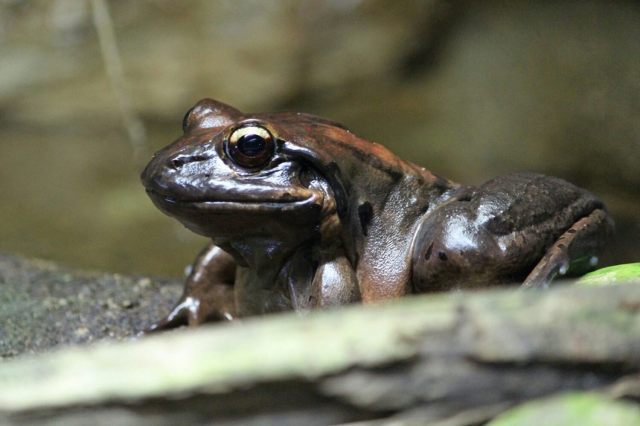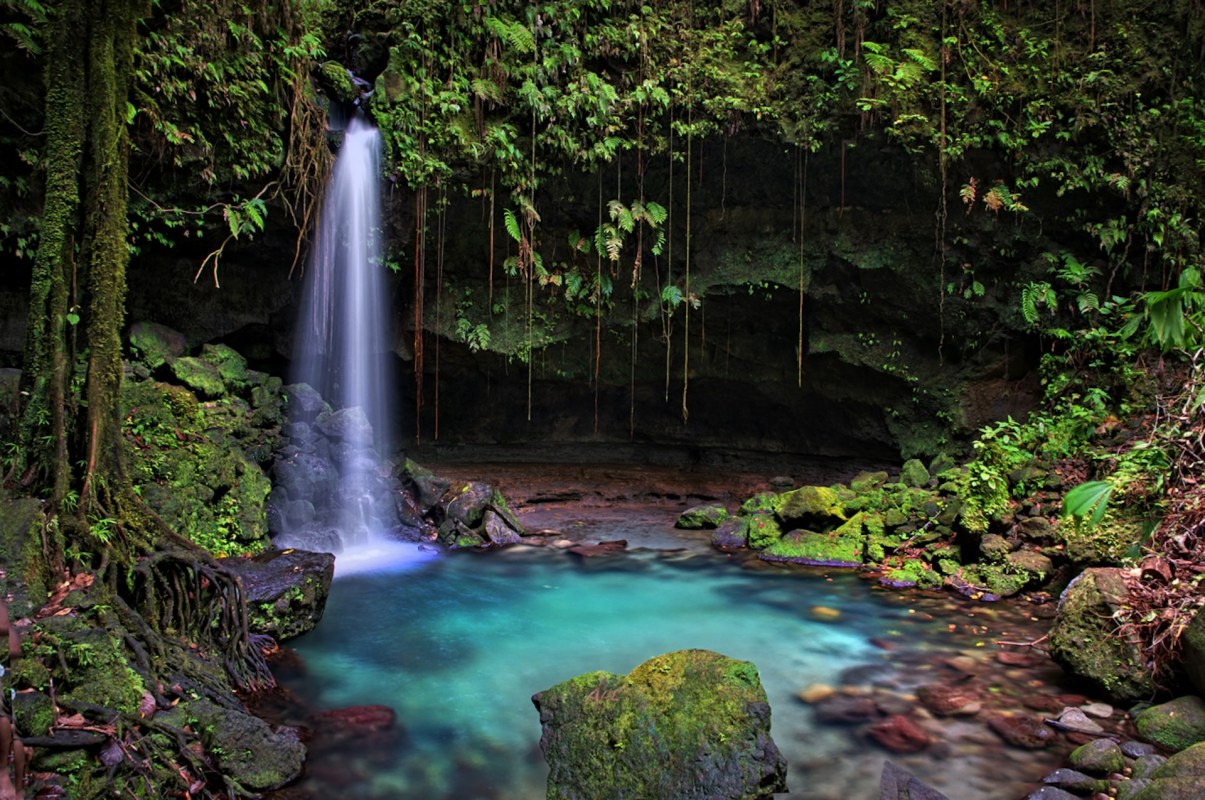Most of us have heard of the chicken of the sea, while fewer have likely heard of the chicken of the Caribbean — but scientists and conservationists are calling for its protection as it faces extinction.
What's happening?
Ecological disasters have wreaked havoc on the island Dominica's mountain chicken frog population, the Guardian reported. Leptodactylus fallax, also known as the giant ditch frog, is one of the largest frogs in the world, weighing over two pounds with a length of up to eight inches.
Once so populous on the island they were cooked as its national dish (because they taste like chicken), the population has plummeted by 99% since 2002 when Chytridiomycosis — a fungal infectious disease that affects more than 500 frog species worldwide — struck, according to the Zoological Society of London (ZSL).
The frogs were further affected by Hurricane Maria — the strongest hurricane to ever hit the island, devastating the already fragile population.
A recent survey by scientists found only 21 of the frogs alive in the wild, as reported by CNN. Andrés Valenzuela Sánchez, a ZSL research fellow in wildlife health who was involved with the survey, was inspired by the effort but saddened by its results, saying, "The situation of the species in nature is even worse than what we thought before the survey."
"This is a species facing imminent extinction in the wild, yet it was in a healthy state only a couples of decades ago. Its fate sends us a very clear warning about the dangers facing wildlife on Earth today," head of wildlife epidemiology for the ZSL, Andrew Cunningham, told the Guardian.

Why is the looming extinction concerning?
While the frogs once lived across seven Caribbean islands, CNN reported ZSL researchers now believe that Dominica is the last place on Earth where they can be found in the wild. They are one of Dominica's top predators — eating insects, snakes, small mammals, and even other frogs — making them incredibly important to the ecosystem.
While in other areas of the world, scientists are encouraging people to help get rid of invasive frogs, the race to save the mountain chicken frog from extinction is in high gear, and scientists find their efforts further hindered by the human-caused effects of Earth's overheating.
Invasive species, habitat loss from agriculture, quarrying and construction, and roadkill incidents caused by drier rivers forcing the frogs close to roads in search of water all add to the disappearing population.
What's being done to help the mountain chicken frog?
Since 2002, the Mountain Chicken Recovery Programme has extensively researched the frog and developed innovative management techniques to try and prevent its extinction.
"We've managed to keep the mountain chicken frog alive and able to survive the fungal disease for over 20 years now, thanks to the collaboration that has gone into saving this species. We should not forget that. If we can keep that up for just a bit longer, with the right resources, it is possible to turn their fate around. Certainly we are not giving up hope," Jeanelle Brisbane, a wildlife ecologist with the Forestry, Wildlife, and Parks Division in Dominica, told the Guardian.
"We still have a couple of years to try to get something done before the mountain chicken frog becomes extinct in the wild," agreed Cunningham. "It's a tight situation."
Donating to or volunteering with conservation organizations focused on biosecurity can also be pivotal to conserving critically endangered species.
Join our free newsletter for weekly updates on the coolest innovations improving our lives and saving our planet.









